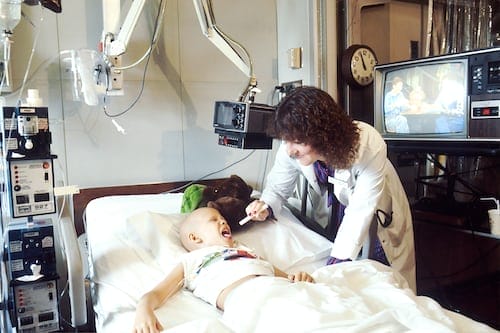Oral evaluation
All Services

Regular oral evaluations are crucial for preventive care and early detection of dental issues. They play a key role in maintaining optimal oral health and preventing more significant problems in the future. If you have specific concerns or experience any oral health symptoms between regular check-ups, it's advisable to schedule an appointment with your dentist promptly.
Why Us
If your question is “Why should one undergo an oral evaluation?” here are several reasons why an oral evaluation is important for maintaining good oral health:
-
Early Detection of Dental Issues:
- Regular oral evaluations allow for the early detection of dental problems such as cavities, gum disease, and oral cancer. Early intervention often leads to more effective and less invasive treatments.
-
Preventive Care:
- Oral evaluations are a cornerstone of preventive dental care. By identifying and addressing potential issues early on, dentists can help prevent the development of more significant problems in the future.
-
Gum Disease Prevention:
- Periodontal examinations during oral evaluations help in the early detection of gum disease. Managing gum disease at its early stages is crucial for preventing tooth loss and maintaining healthy gums.
-
Oral Cancer Screening:
- Oral evaluations include screenings for oral cancer. Early detection of oral cancer increases the chances of successful treatment and recovery.
-
Cavity Detection:
- Dentists can detect cavities in their early stages during oral evaluations, allowing for timely intervention to prevent further decay and the need for more extensive dental work.
-
Treatment Planning:
- After an oral evaluation, dentists develop personalized treatment plans based on the specific needs and conditions of each individual. This may include restorative procedures, preventive measures, and guidance on oral hygiene practices.
-
TMJ Assessment:
- Evaluating the temporomandibular joints (TMJ) during an oral evaluation helps identify any signs of dysfunction or disorders. Early intervention can prevent worsening symptoms and improve jaw function.
-
Individualized Oral Hygiene Guidance:
- Dentists provide guidance on proper oral hygiene practices tailored to the individual’s needs. This includes advice on brushing, flossing, and other preventive measures.
-
Monitoring Changes Over Time:
- Regular oral evaluations allow dentists to monitor changes in oral health over time. This is particularly important for individuals with ongoing dental concerns or those undergoing orthodontic treatment.
-
Occlusion (Bite) Assessment:
- Assessing the occlusion (how the upper and lower teeth come together) during an oral evaluation helps identify any bite issues or misalignments that may require attention.
-
Patient Education:
- Dentists use oral evaluations as opportunities to educate patients about their oral health, the importance of preventive care, and any specific issues or conditions they may have.
-
Overall Health Connection:
- Oral health is connected to overall health, and certain dental conditions may be indicative of or contribute to systemic health issues. An oral evaluation can contribute to the overall well-being of an individual.
By undergoing regular oral evaluations, individuals can actively participate in maintaining their oral health and addressing any dental issues promptly. These evaluations are an essential part of a preventive approach to dental care, promoting early detection and intervention for optimal oral well-being.
FAQ
What is an oral evaluation?
In general, it is recommended to have a professional teeth cleaning every six months. However, the frequency may vary based on individual oral health needs. Your dentist or dental hygienist will provide guidance on the ideal schedule for your specific situation.
How often should I have an oral evaluation?
Teeth cleaning is typically not painful. During the cleaning, you may feel some pressure and scraping as the dental professional removes plaque and tartar. If you experience discomfort, it’s essential to communicate with the dental team, as they can make adjustments to ensure your comfort.
What happens during an oral evaluation?
It’s generally recommended not to eat a heavy meal before a dental cleaning, as the process involves various tools and instruments in your mouth. However, having a light meal should not pose a problem. Drinking water is usually fine.
Is the X-ray part of the oral evaluation necessary?
The duration of a teeth cleaning appointment can vary depending on factors such as the extent of plaque and tartar buildup, the thoroughness of the cleaning, and any additional treatments needed. On average, a routine cleaning appointment may take 30 minutes to an hour.
Does the oral evaluation include cleaning?
X-rays are not always taken during a routine cleaning, but your dentist may recommend them periodically to assess the health of your teeth and identify any issues not visible during the clinical examination.
What is the purpose of an oral cancer screening?
Professional teeth cleaning can help remove surface stains from your teeth through the polishing process. However, for deeper stains, additional whitening treatments may be recommended.
Can oral evaluations detect other health issues?
Many dental insurance plans cover routine teeth cleaning as a preventive measure. However, coverage may vary, so it’s essential to check with your insurance provider to understand the details of your plan.
What if I have dental anxiety?
It’s a good practice to maintain your regular oral hygiene routine, but avoid aggressive brushing right before your appointment, as it may cause gum irritation. Your dental professional can better assess your oral health if you’ve maintained your usual routine.
How long does an oral evaluation typically take?
To maintain good oral hygiene, brush your teeth twice a day, floss daily, use an antiseptic mouthwash if recommended by your dentist, and follow a balanced diet low in sugary foods and drinks.




